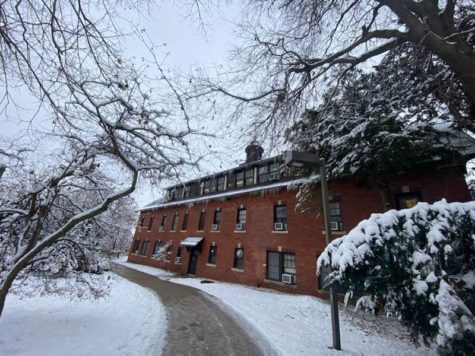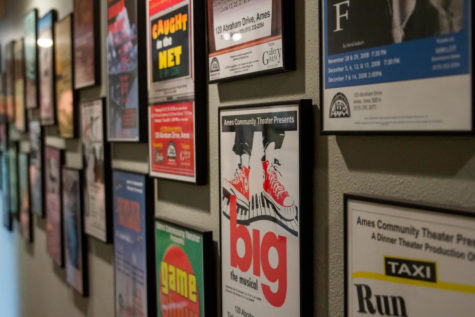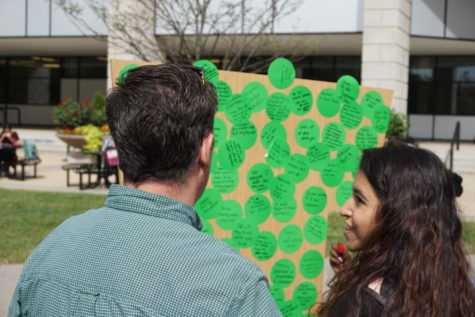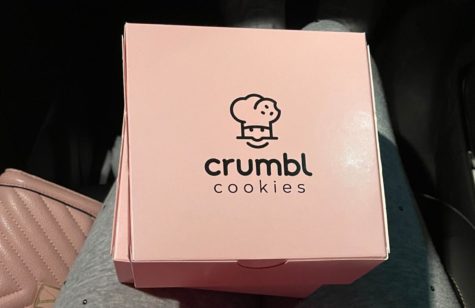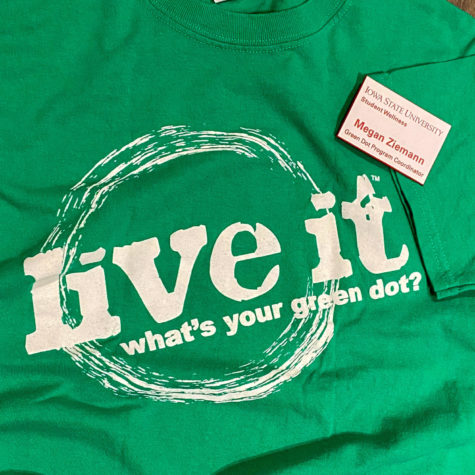Students find enjoyment in uncommon majors
May 31, 2011
Deciding a major is probably one of the hardest choices a college student has to make. For ISU students, there are more than 100 majors to choose from.
Many students choose common majors such as psychology, animal science and mechanical engineering. Here are a few students who went off the beaten path, sharing their experience with less common majors.
Katie Burney, sophomore in supply chain management
Before coming to Iowa State, Burney had no idea what supply chain management was. She said she started at Iowa State as a freshman majoring in marketing.
However, after attending the first career fair of the year, Burney realized that marketing was not for her. At that point, she discovered supply chain management.
“There was this supply chain major, and I was like, ‘Wow, there are a lot of people here looking for them and they make pretty good money, and it’s a really growing field,'” Burney said. “I looked more into it, and I realized that it had a lot of the strengths that I could see myself doing, a lot of the traits required of the job.”
Burney is one of the 20 undergraduate supply chain management majors at Iowa State. She described supply chain management as a broad term that involves everything from acquiring materials for the creation of the product to selling the product to a customer.
“It includes everything from point A to point Z,” Burney said. “It goes from the manufacturer to the wholesaler or the distributor to a retailer and finally to a customer.”
She said there are two branches of supply chain management: operations and logistics.
“Operations is mainly in a plant; how many workers do you need, how much are you going to produce, how much are you going to need to produce at this capacity,” Burney said. “Logistics is more with planning and transportation.”
Burney said a person interested in supply chain management should be detail-oriented, goal-oriented, organized, good at planning and analytical. She also said that a supply chain management major should be a good communicator.
“We will be working with people all the time, every day,” Burney said. “So, whether I’m going to work with somebody when I’m buying a product or if you want to buy tooling components or you want to buy metal to go into a product or if you are working with whoever is buying your product once it’s finished, you are always working with people.”
She also recommended students interested in supply chain management to talk to professors in the major.
“I would say that all of the professors I have met in my major, most of them are really great about talking to you, spending time with you and valuing you as a person,” Burney said. “If I was someone who didn’t know about the major and was slightly interested, I would actually just go talk with them because they’re more than willing to take the time to meet with new students.”
Grace Sward, sophomore in insect science
Grace Sward has enjoyed interacting with insects since she was a child. At the age of 7, Sward realized her passion could translate into a career.
“I would go out and catch different bugs or like toads and snakes, and just bring them back to the house and ask my mom if I could keep them,” Sward said. “My mom got me an insect field guide when I was like 7, and that’s one way I found out that I could actually do it as a job.”
Sward is currently one of 12 insect science/entomology majors at Iowa State.
“The major is so small and so tight-knit that everyone kind of knows everyone in the major, so if we find out something new or some new research that just came out, we will tell each other about it,” she said. “And, then kind of geek out about it.”
Within her major, Sward said, there are many branches of study. For instance, one of the more popular branches is forensic entomology.
“You’ll see TV shows like ‘CSI’ where they will go get maggots and be able to determine time of death,” she said.
However, Sward also said that research is the main area that many students study; her main interest is, in fact, research.
“I really like the insect interactions,” Sward said. “I especially like pest management using natural enemies or integrated pest management plan, which provides both natural enemies and pesticides to control pest population.”
When she graduates, Sward does not have much to fear when it comes to getting a job. She said that job placement for entomologists is constantly at nearly 100 percent.
“There’s actually a joke in the entomology department that entomologists are essentially biologists with a job,” Sward said. “Basically, just need to know where to look and you’ll find a job really easily.”
Sward said that insect science is a rewarding major to pursue. However, she recommended that all students interested in her major should seriously think about the major before committing to it.
“Know that you love it because I know a lot of people who just haven’t absolutely loved just working with insects that figured out that it just wasn’t for them,” Sward said. “Basically just figure out what you want out of it.”
Krissy Shaver, junior in culinary science
All humans need to eat, but not all know how to cook. For those who do not, Shaver and the other 42 undergraduates majoring in culinary science at Iowa State are here to help.
“I chose my major because I have always been interested in all aspects of food; the cooking to the science of why things cook the way they do,” Shaver said. “I told my adviser about what I’m interested and my goals and she steered me toward culinary science.”
As a culinary science major, Shaver is able to participate in test kitchens, corporate restaurant menu development and product development.
Although presentation of food is important, Shaver said there really is a lot of science that goes into being a culinary science major. Students majoring in culinary science must take nine physical science courses as well as 12 or 13 biological science courses.
“It’s not culinary arts,” Shaver said. “It’s a very science-based curriculum.”
As a culinary science major, students can choose from careers can choose from a wide variety of jobs. For instance, they can become test kitchen researchers, culinary research technologists, and food research and development managers.
“I want to get into research and development for a food production company or a restaurant chain,” Shaver said. “I’m specifically interested in allergen free or food-intolerance friendly foods.”
To further enhance their knowledge, students can participate in the learning communities and student organizations for culinary science majors. For instance, there is the Food Science and Human Nutrition Learning Community, the Food Science Club and the Culinary Science Club.
“Join Culinary Science Club,” Shaver said. “It is so fun, you meet people that you can food-geek out with; the trips are fun and interesting, and you get so many chances to network with professionals in the industry.”







